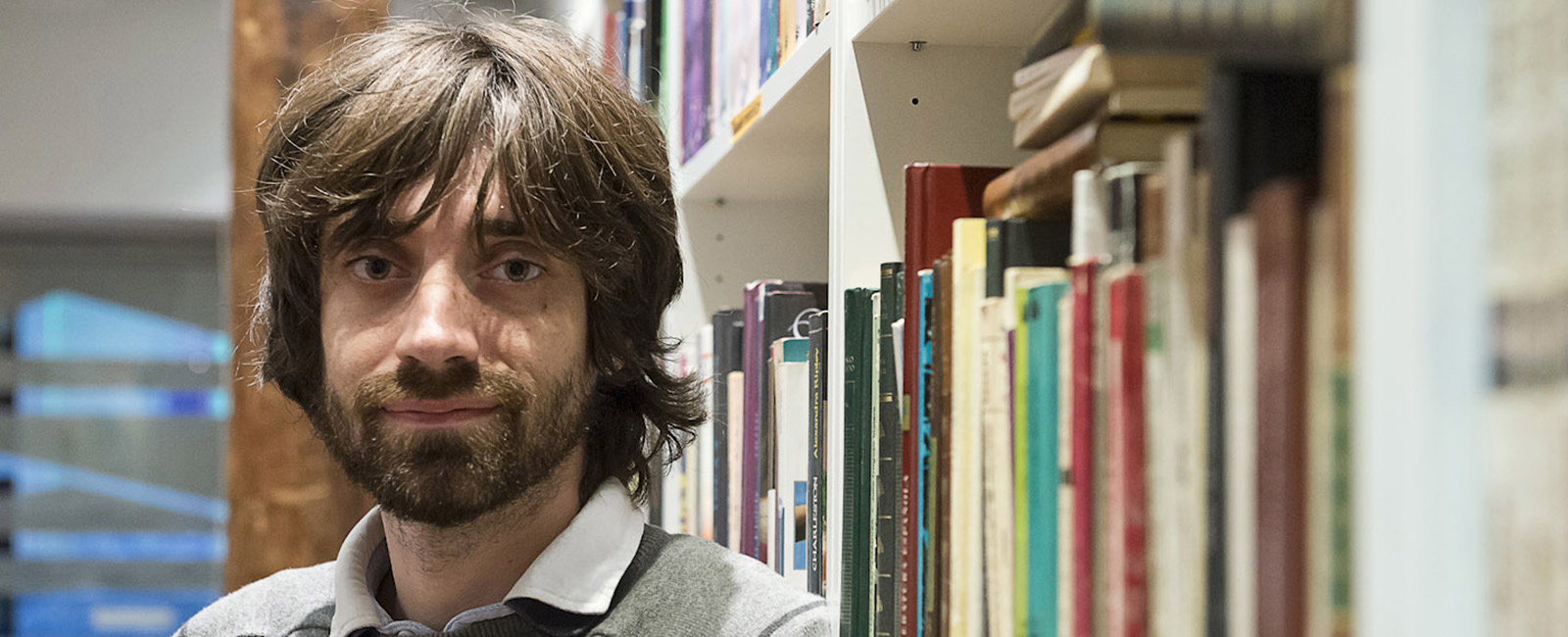
Juan Gómez Bárcena presents ‘Kanada’: “There is a dearth of novels dealing with the scars the Holocaust left on its survivors”
Kanada, the new novel by Juan Gómez Bárcena, is now available in bookstores. Written with funds from the 2014 Leonardo Grants scheme of the BBVA Foundation and published by Editorial Sexto Piso, the novel relates the return home of millions of Nazi death camp survivors after the Second World War.
30 March, 2017
Why a novel about the Holocaust? “For years I’ve been exploring the phenomenon of Nazism as a reader and researcher, though I never imagined I would end up writing a novel on the subject. Though the death camps have been dealt with widely in art and literature, I was surprised to find that very few novels focus on the return home of the prisoners. We know a lot about how the extermination happened and the motives and methods of the executioners, but very little about the world the survivors encountered back in their countries of origin, or what kind of scars the torture left on their lives. Kanada is an attempt to tell that less known story, and it is in some ways a harder read, because it lays the blame not only on Nazism, but also on a whole continent that was unable or unwilling to comprehend the victims’ suffering,” the author explains.
Juan Gómez Bárcena (Santander, 1984) holds a BA in Literary Theory and Comparative Literature from the Universidad Complutense de Madrid and in Philosophy from the Universidad Nacional de Educación a Distancia (UNED). “Literature defined my field of action, history my concerns and subject matter, and philosophy the perspective from which to approach them,” he affirms.
The idea for Kanada first came to him in 2011, “the year I was teaching in the British International School in Budapest. Although I wrote almost all of the book on my return to Spain, thanks to the Leonardo Grant of the BBVA Foundation I was able to spend a month back in Hungary searching for locations, and rounding off my documentary research. But above all, Kanada owes a debt to numerous testimonials by survivors of the Nazi genocide – György Konrád, Heda Margolius Kovály, Primo Levi, Charlotte Delbo, Imre Kertész, etc. – which I have studied at length over these past years.”
This is his second novel after El cielo de Lima (2014), which won the Premio Ojo Crítico de Narrativa 2014, the Premio Sintagma for the best Spanish novel, chosen by readers, and the Premio Ciudad de Alcalá de Narrativa 2015, and was finalist in the Premier Roman de Chambéry. His first work, the book of short stories Los que duermen (2012) was named one of the year’s best writing debuts by El Cultural.
Kanada – the title refers to the place where the Jews’ belongings were classified and selected on their arrival at Auschwitz – represents a qualitative leap in his writing career. “This is unquestionably my most experimental project, and I would venture to say the best resolved of my career,” he remarks. “I take on a lot of challenges in its pages: a little used narrative voice, the second person; a confined space – almost all of the story unfolds in one room; and a fluid, often bewildering narrative time that seeks to mirror the distortions of memory that frequently accompany post-traumatic stress disorder.”
What did the Leonardo Grant signify for the project, and at that precise moment in your professional life? Gómez Bárcena offers a diagnosis that will ring true for many creative talents at intermediate stages of their career: “Many writers cannot live off the proceeds of their books, which means we have to combine our literary enterprise with other jobs that demand energy and time we could otherwise invest in our projects. Grants like this mean we can set aside our work responsibilities for a time – a year in my case – and concentrate full-time on writing. I think it’s no exaggeration to say that without funding support from the BBVA Foundation, this novel could never have been written.”
With the publication of Kanada, all the projects presented by the 2014 Leonardo Grant holders in Literary Creation are now in the public domain. The full list comprises La risa caníbal, an essay by Andrés Barba (Alpha Decay); the theater play Furiosa Escandinavia by Antonio Rojano, which won the Premio Lope de Vega 2016 and was performed at the Teatro Español in Madrid from March 9 to April 16, 2017; and two further novels: El gran imaginador (Plaza & Janés) by Juan Jacinto Muñoz Rengel, and Tuyo es el mañana (Acantilado) by Pablo Martín Sánchez.
